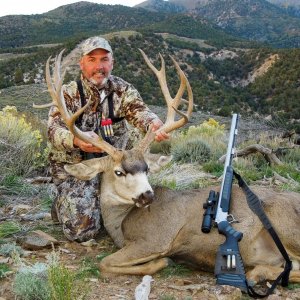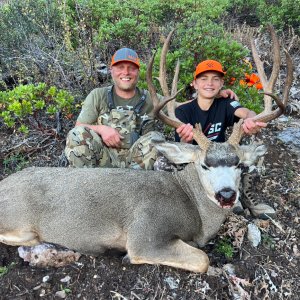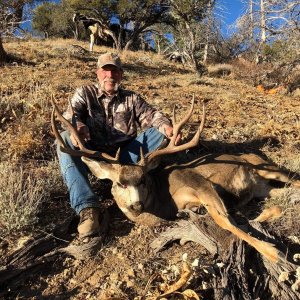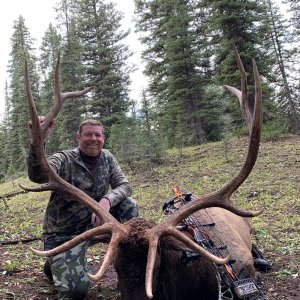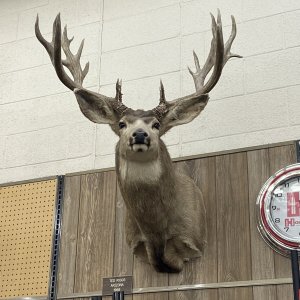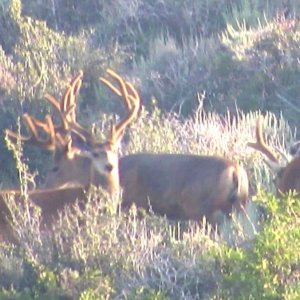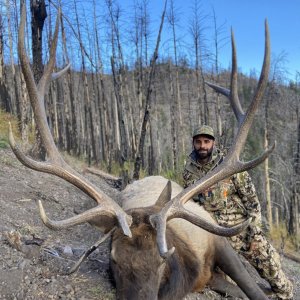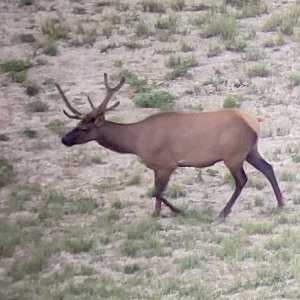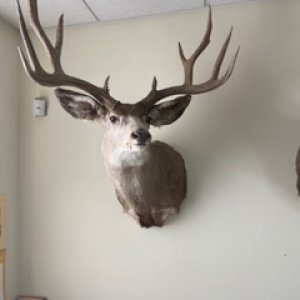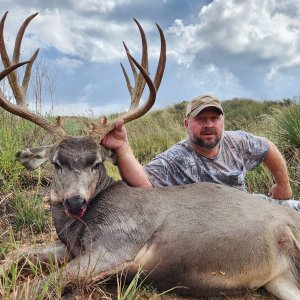NVBighorn
Long Time Member
- Messages
- 9,458
http://www.yakima-herald.com/storie...ials-will-kill-bighorns-in-order-to-save-them
Posted on Wednesday, February 10, 2010
State officials will kill bighorns in order to save them
By Scott Sandsberry
Yakima Herald-Republic
YAKIMA, Wash. -- State wildlife officials will begin killing as many as 90 ailing bighorns along the Yakima River Canyon between Yakima and Ellensburg later this month in hopes of eradicating a pneumonia outbreak that might otherwise spread to neighboring herds.
The action, determined Monday evening by Washington Department of Fish and Wildlife officials, is a regrettable but necessary action, said Donny Martorello, the department's bighorn section manager.
"We wish we weren't in this situation," Martorello said Tuesday. "We have to go out and euthanize animals, which is not something we want to have to do, but it's the best thing we can do for the longevity of the herds."
The Umtanum and Selah Butte herds on the west and east sides of the Yakima River, respectively, comprise about 260 bighorn sheep. Roughly a third of those are exhibiting signs of pneumonia -- typically caused by pathogens, notably pasteurella and mycoplasma, that in some cases wiped out entire herds.
All animals shown exhibiting the signs of being infected will be killed by state Wildlife officials and members of the U.S. Department of Agriculture's Wildlife Services, Martorello said.
It will be the first time in Washington that state or federal agencies have proactively removed sick bighorns to prevent a disease spread, though similar actions have been taken in Colorado, Montana and British Columbia.
The state has been monitoring the pneumonia outbreak in the canyon since early December, with at least 18 bighorns already found dead and almost certainly other bodies still unfound.
Outbreaks such as this have appeared periodically in Western states for decades, usually in one of two basic scenarios -- nearly complete herd die-offs, such as the one that occurred in Hells Canyon along the Snake River between Washington and Idaho in 1995, or lesser outbreaks that might kill a fifth of a herd population.
"We believe this is the latter situation," Martorello said. "There are certainly bighorns we have not found that have died, but it doesn't look like we're going to have a herd-level die-off.
"The downside of that is they have a high probability of passing it on to the lambs," he added. "As soon as the lambs are done weaning ... we start seeing the pathogens running their course through the lamb and it catches pneumonia."
Killing the infected bighorns, Martorello said, "reduces the spread of this disease to other herds in the Yakima area and reduces the likelihood of passing it along to lambs within the (already infected) herd."
Public hunters will not be involved in the removal of the infected animals because of the need to have experts pick out the animals with clinical signs of pneumonia. Teams of volunteers will be formed, though, to assist those experts in locating the infected bighorns.
Typically, meat recovered from the Wildlife Department's animal-removal actions is transported to food banks, but that won't be the case here because of the "chance of secondary infections we're not aware of," Martorello said. "We can't guarantee there's not other things these diseased animals might have, and for that reason we're not bringing this meat out."
The heads (including the horns), neck and lungs of each euthanized animal will be removed and transported to Washington State University for disease testing.
The animals will be shot using nontoxic bullets and left for scavengers, primarily coyotes and large birds. Martorello said he was unaware of any situation in which scavengers could spread the disease to other herds, and that the pathogens that can be deadly to the bighorns don't transmit to humans or domestic livestock.
About 800 bighorns, more than half the state's total population of roughly 1,500, live within the Yakima River Basin of Yakima and Kittitas counties. Other herds include the Quilomene herd in eastern Kittitas County and the Cleman Mountain and Tieton herds farther west. The pneumonia outbreak in the canyon herds has not affected those herds, biologists say.
Posted on Wednesday, February 10, 2010
State officials will kill bighorns in order to save them
By Scott Sandsberry
Yakima Herald-Republic
YAKIMA, Wash. -- State wildlife officials will begin killing as many as 90 ailing bighorns along the Yakima River Canyon between Yakima and Ellensburg later this month in hopes of eradicating a pneumonia outbreak that might otherwise spread to neighboring herds.
The action, determined Monday evening by Washington Department of Fish and Wildlife officials, is a regrettable but necessary action, said Donny Martorello, the department's bighorn section manager.
"We wish we weren't in this situation," Martorello said Tuesday. "We have to go out and euthanize animals, which is not something we want to have to do, but it's the best thing we can do for the longevity of the herds."
The Umtanum and Selah Butte herds on the west and east sides of the Yakima River, respectively, comprise about 260 bighorn sheep. Roughly a third of those are exhibiting signs of pneumonia -- typically caused by pathogens, notably pasteurella and mycoplasma, that in some cases wiped out entire herds.
All animals shown exhibiting the signs of being infected will be killed by state Wildlife officials and members of the U.S. Department of Agriculture's Wildlife Services, Martorello said.
It will be the first time in Washington that state or federal agencies have proactively removed sick bighorns to prevent a disease spread, though similar actions have been taken in Colorado, Montana and British Columbia.
The state has been monitoring the pneumonia outbreak in the canyon since early December, with at least 18 bighorns already found dead and almost certainly other bodies still unfound.
Outbreaks such as this have appeared periodically in Western states for decades, usually in one of two basic scenarios -- nearly complete herd die-offs, such as the one that occurred in Hells Canyon along the Snake River between Washington and Idaho in 1995, or lesser outbreaks that might kill a fifth of a herd population.
"We believe this is the latter situation," Martorello said. "There are certainly bighorns we have not found that have died, but it doesn't look like we're going to have a herd-level die-off.
"The downside of that is they have a high probability of passing it on to the lambs," he added. "As soon as the lambs are done weaning ... we start seeing the pathogens running their course through the lamb and it catches pneumonia."
Killing the infected bighorns, Martorello said, "reduces the spread of this disease to other herds in the Yakima area and reduces the likelihood of passing it along to lambs within the (already infected) herd."
Public hunters will not be involved in the removal of the infected animals because of the need to have experts pick out the animals with clinical signs of pneumonia. Teams of volunteers will be formed, though, to assist those experts in locating the infected bighorns.
Typically, meat recovered from the Wildlife Department's animal-removal actions is transported to food banks, but that won't be the case here because of the "chance of secondary infections we're not aware of," Martorello said. "We can't guarantee there's not other things these diseased animals might have, and for that reason we're not bringing this meat out."
The heads (including the horns), neck and lungs of each euthanized animal will be removed and transported to Washington State University for disease testing.
The animals will be shot using nontoxic bullets and left for scavengers, primarily coyotes and large birds. Martorello said he was unaware of any situation in which scavengers could spread the disease to other herds, and that the pathogens that can be deadly to the bighorns don't transmit to humans or domestic livestock.
About 800 bighorns, more than half the state's total population of roughly 1,500, live within the Yakima River Basin of Yakima and Kittitas counties. Other herds include the Quilomene herd in eastern Kittitas County and the Cleman Mountain and Tieton herds farther west. The pneumonia outbreak in the canyon herds has not affected those herds, biologists say.

